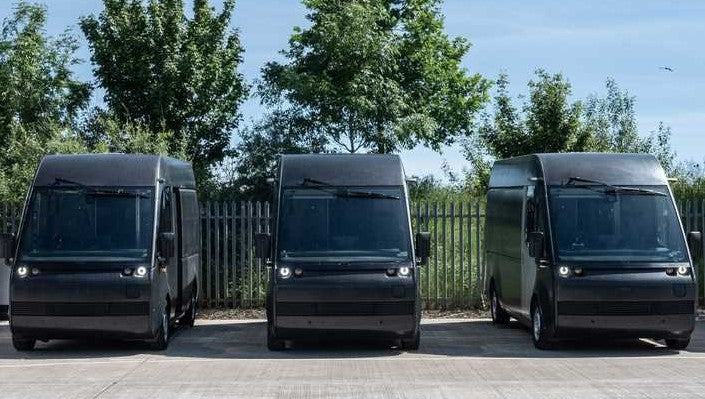
British electric vans startup Arrival reportedly is cutting 800 jobs, about half its remaining workforce, to reduce costs as it seeks extra funding and plans US expansion to take advantage of green energy subsidies.
According to The Guardian, The troubled electric vehicle maker said “approximately 50%” of the company’s 1,600 strong global workforce would leave the company.

Discover B2B Marketing That Performs
Combine business intelligence and editorial excellence to reach engaged professionals across 36 leading media platforms.
Arrival reportedly told investors the job cuts, and other measures to trim spending, would result in a halving of its operating costs to “approximately $30m (GBP24m) per quarter” following a review of its operations.
The US listed company has switched its strategy from focusing on the UK to developing a foothold in the US van market with plans to start production in Charlotte, North Carolina, next year “subject to raising additional capital”.
It hopes to benefit from Joe Biden’s Inflation Reduction Act, a package of $369bn in subsidies and tax credits for companies investing in electric vehicles and renewable energy technologies, as long as the products and parts they manufacture are made in the US.
In the UK, Arrival spent heavily on robot heavy factories in Banbury and Bicester but cut 800 jobs last July, the newspaper report noted.
The Guardian said the latest job cuts are the first act of Igor Torgov, who joined the company last February and has now taken on the role of chief executive.
Torgov replaces interim chief Peter Cuneo, who stepped into the role in November when founder Denis Sverdlov, a Russian telecoms billionaire, stepped aside.
Cuneo led the stock market listing that injected $660m into the company.
The company has appointed financial advisory firm Teneo to assess options including raising more capital and improving its balance sheet.
The company was valued at more than $15bn on the Nasdaq in New York at its height, but the shares slumped during 2022 and the firm is now worth $250m.
On listing, the firm had said it planned to focus on vans and buses before potentially moving into smaller passenger vehicles, with a focus at first on taxis, but with the possibility of cars for consumers too, The Guardian noted.






